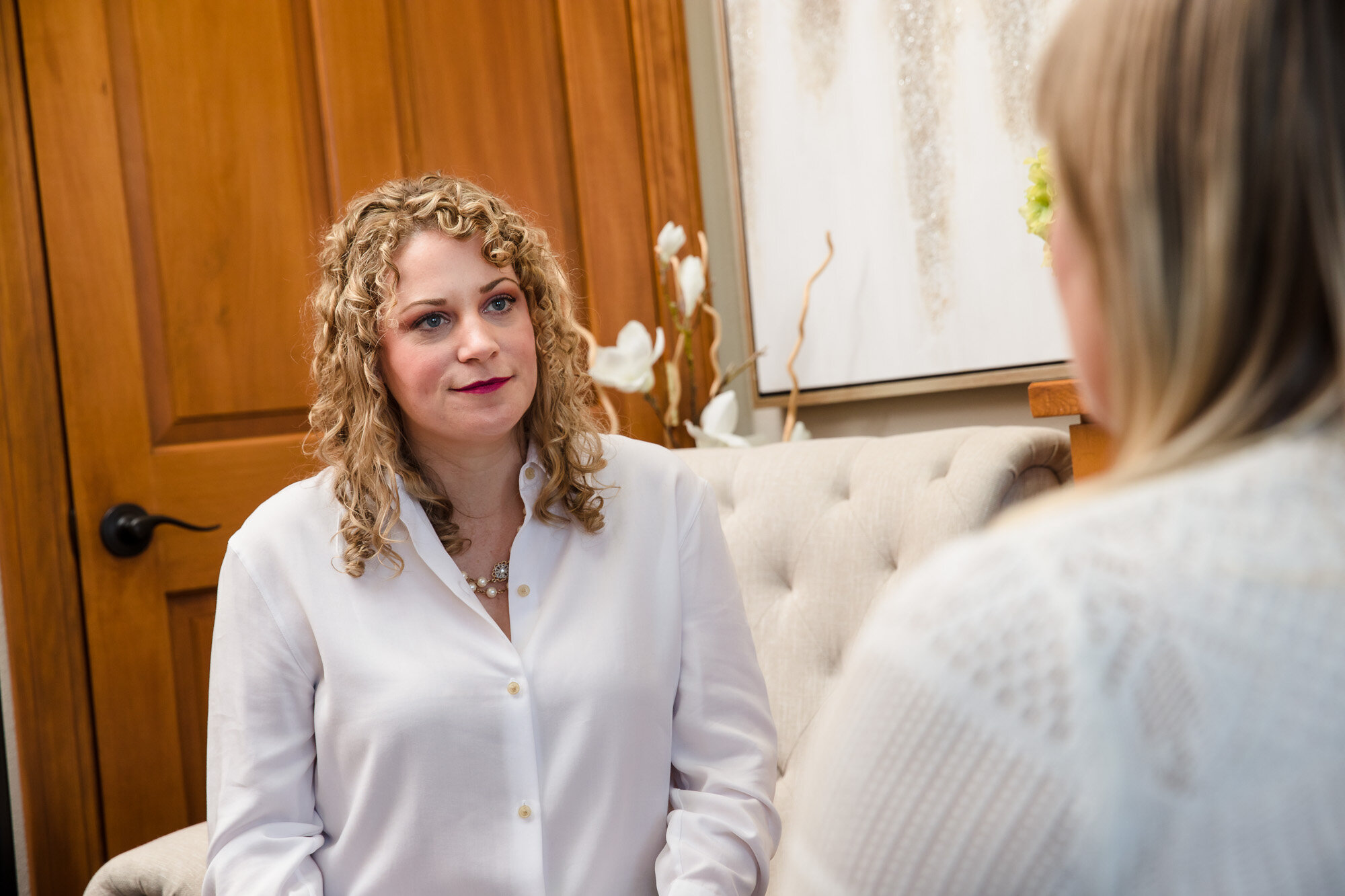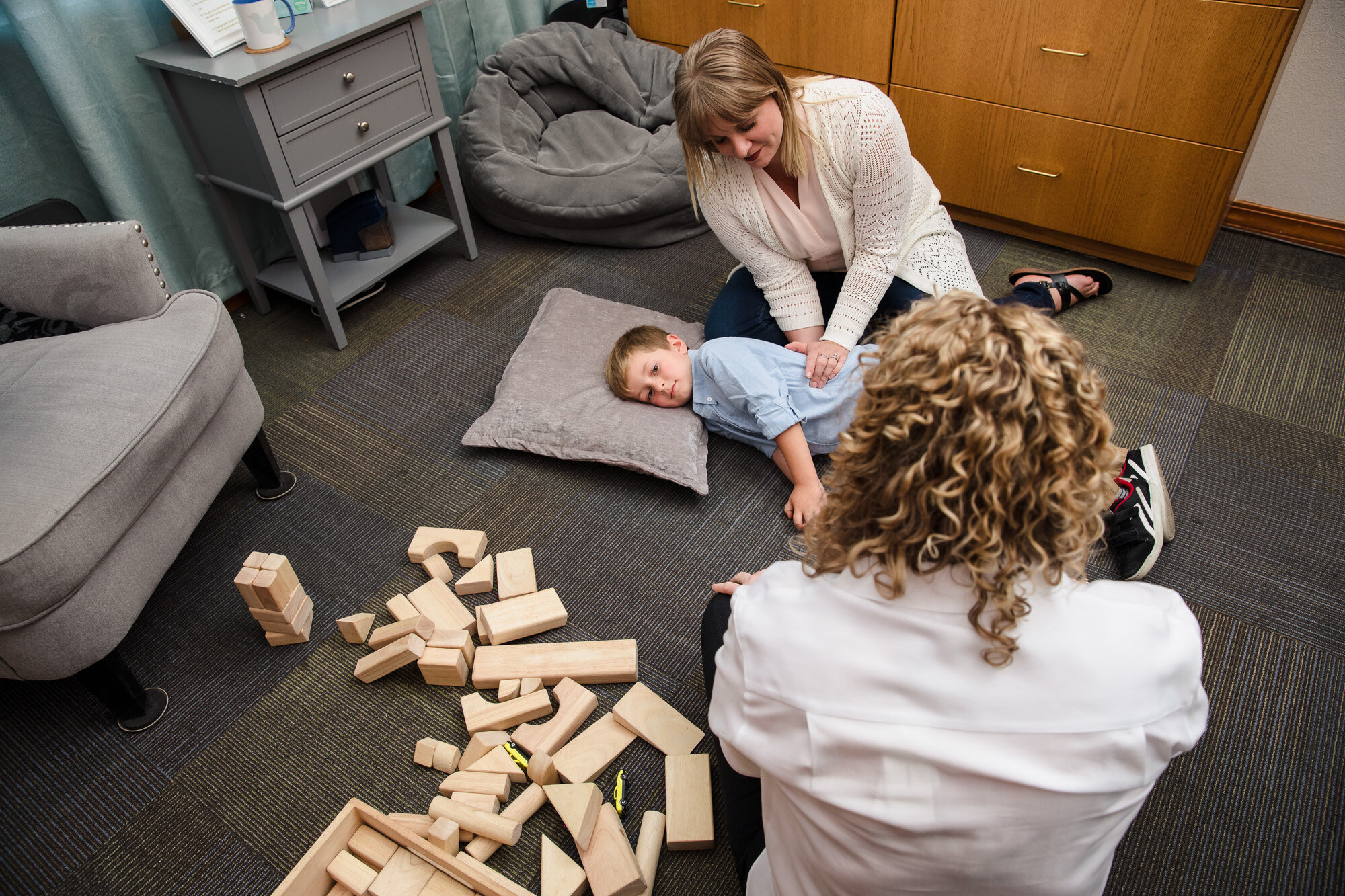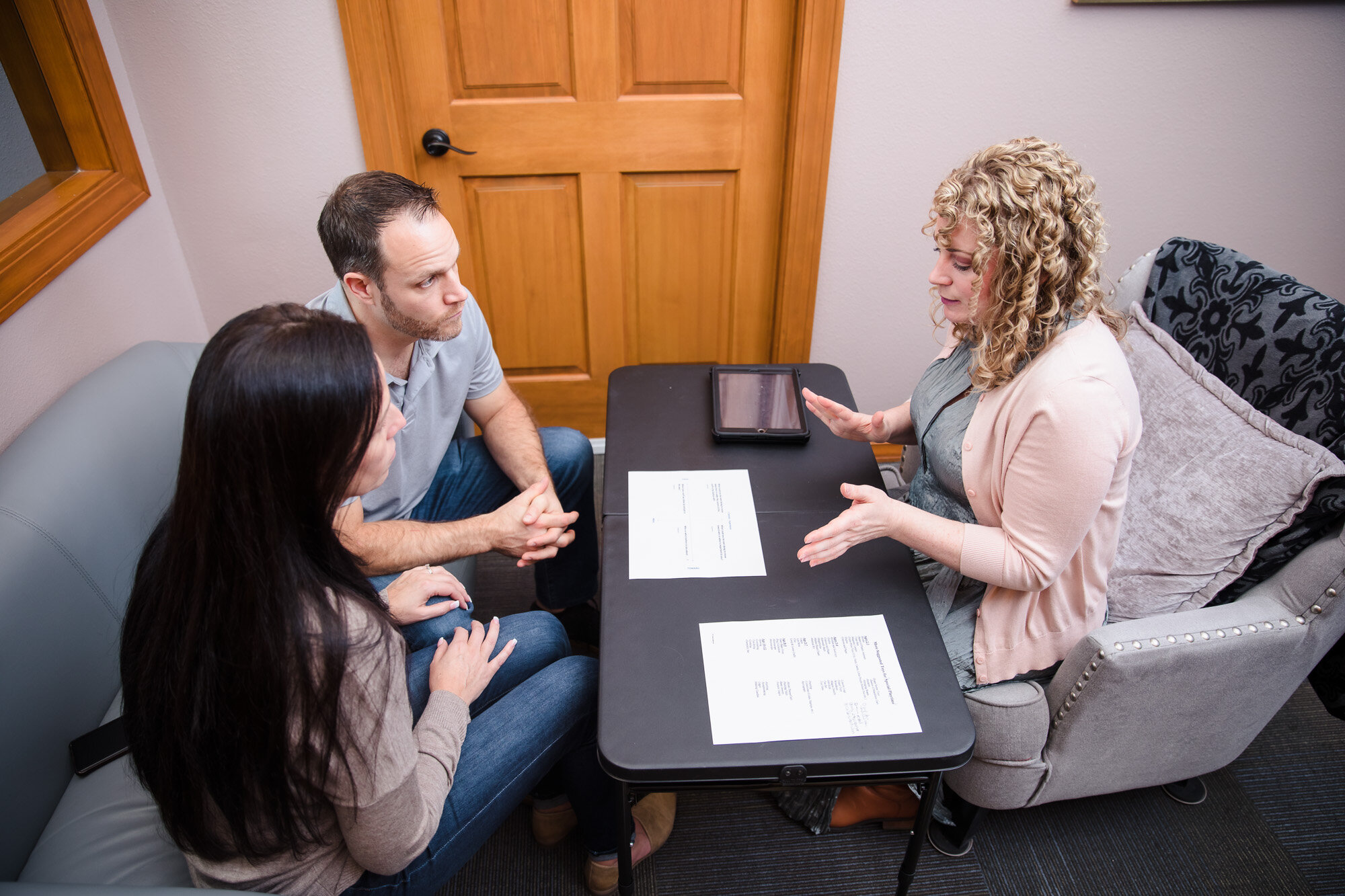Today we are talking about alternative treatments for supporting your child's behavior. Alternative treatments might be things like essential oils, elimination diets, using the moon to decide when you will go out for fun activities versus hunkering down in anticipation of naughty behavior, and other types of old wives tales and Instagram / Pinterest wisdom that is not necessarily linked to evidence-based studies. Many providers, including physicians, psychologists, therapist, and others, get this question all the time. It's a very important question because it frames the way that you as a parent will approach treatment for your child and the energy and attributions you give to interventions along your child's journey.
Read MoreWhy are Anxiety and ADHD confused so often?
Dr. Blevins discusses why ADHD or ADD are commonly confused with anxiety. She talks about how this confusion can happen in the first place and
Read MoreABA Therapy | Chatting with Traditional Applied Behavior Analysis Therapists
I'm chatting with the owners of Pacific Northwest Behavior, a Spokane, WA based ABA provider to young children with autism and other developmental difficulties. Kourtney and Steve are BCBAs, and we chat about the important ethical considerations of using ABA to honor autistic people's independence while also helping them to gain more independence.
We dive into differential reinforcement and how parents are likely to encounter this behavioral principal with any child on a typical day.
Read MoreFlexible home learning schedule | How to Keep kids engaged
We're taking a break from expert chats today so I can bring you information that I believe is awesome and super helpful to creating a learning-at-home schedule that benefits your child and you.
I'll go into the one big secret that teachers have been doing in Finland's schools for a while now. It helps increase attention and productivity in kids, promotes better mood, and is associated with higher achievement scores and better brain development.
Read MoreTreating Dyslexia | Expert Interview with Casey Harrison from The Dyslexia Classroom
Dyslexia is the topic for this week! This is also known as a Specific Learning Disorder/disability where the deficits are in basic reading skills, namely phonological processing.
Casey Harrison, an expert dyslexia specialist, will go into much greater detail about the ins-and-outs of what this means and other terms you may have heard used with dyslexia. Casey is an internationally sought after dyslexia treatment expert with over 25 years of experience in education.
We discuss what you should look for in a reading specialist if your child needs support and what a good therapeutic reading program entails. We also talk about learning to read more generally, so if your child is a bit younger and you are wondering about the approach to take, this is a great video to watch.
Casey works with children …more
Read MoreYoung Family Estate Planning
Today's video is the second in a three-video series on supporting your child in the financial domain. A couple of week's ago I addressed college (and other after-high-school pursuits) planning. In a few weeks I'll be addressing growing financial skills through intentional parent-led teaching by interviewing Thomas Corley, an award-winning author.
Today I am chatting with Randi Johnson of Lilac City Law about young family estate planning. Estate planning is putting in writing (so everyone is clear) your wishes for your children in the unfortunate event of your and their other parent's passing. We will discuss estate planning for typically developing children and the concerns involved when raising a child with special needs.
Specifically, we'll look at considering power of attorney versus guardianship when your child becomes an adult, choosing a guardian and the different types of guardians, examining what a trust is and how it can provide
Read MoreWriting IEP Goals that Work
Today I'm continuing my series of expert chats with Brandie Rosen, a 25-year veteran of special education and teacher training. She's worked on over 5,000 IEPs! She shares with us valuable insight into writing good IEP goals.
IEP goals are the meat of any special education child's services. They provide the road map for what the school, his teachers, and the child will be accomplishing as part of the special education programming for the next calendar year. Brandie helps me to understand how this individualized map fits in with the general education curriculum and how it pulls services, like speech and language, to support meeting the IEP goals. We also dive into Brandie's work in training teachers, specifically with addressing anxiety in students. Brandie provides a framework for how she promotes a collaborative, expertise driven working style so that teachers can do their best work with students while students are getting all of their needs met.
Have a great day!
Dr. Blevins
Resources
Brandie's parent website: https://brandierosenconsulting.com/
Brandie's teacher website: http://learn2teachwithbrandie.com/
Here is a link to Brandie's resource page for parents; lots of good IEP content! :) https://brandierosenconsulting.com/faq-and-resources/
Read MoreFunding College: Info for special needs and traditional students
Dr. Blevins chats with Katrina Roy and Peter Tassoni, both employed with the state of Washington, about considerations for college financial planning. Planning for both special needs and typically developing children are covered.
Download the presentation here: https://teachdirections.enildaclinic.com/funding-college
Questions covered include:
1. What might be additional factors to consider, financial opportunities, or hurdles to overcome when planning for college if a child has special needs?
2. What if your child is considered disabled and won’t get a traditional college credential. Is funding available for them?
3. For typically developing kids, what’s the ideal planning path?
4. For typically developing kids, if I haven’t planned and my kid is now in high school, what should I be doing to best prepare for a good financial situation with them in college?
5. What is my child’s responsibility (at various ages) that I can encourage them to do to contribute to their college financial health?
Read MoreSportscast Your Child's Play to Build Their Attention
This video is for parents of young children or other caregivers working with young children. Dr. Blevins discusses how to use verbal descriptions of your child's play, similar to how sportscasters describe athlete's plays, to help children stay focused. This strategy can support your child in learning to attend to various new parts of a toy or in more complex interactive play, it helps build sustained attention, and helps reduce impulsive movement from toy to toy.
Read MoreGetting Less Preferred Tasks Done | Academic Organization Strategy
In this learning video, Dr. Blevins discusses how parents can support their learners to complete less preferred or more difficult tasks easier by arranging them to occur just before tasks the learner is likely to complete. Do Harder/Less Preferred Tasks, then do easier/More Preferred Tasks. A big take away of this video is that during this difficult time, parents should give themselves self-compassion with creating an academic schedule that works for their family. Not everyone will be able to do what their schools asks of them, and that's okay. Find what works for you and your child. Hopefully small organizational and prevention strategies will help you all to get through this trying time easier. Squirrel Cat is heard in the video hunting for treats in her puzzle box.
Read MoreThe Importance of Getting Outside During Isolation
Exercise is a well researched method to improve your mood and your physical health. During these stressful times we still have the option to go outside. Whether you want to do something active like running or hiking, or sit in the sun and take a leisurely walk, time outside can promote health and help you feel better.
Read MoreGiftedness and Specific Learning Disability... Can a kid have both?
Can you be gifted and have a specific learning disorder, like dyslexia or dyscalculia, or even ADHD? Sure can! This is often called "Twice Exceptional." The symptoms look different for children who are gifted, and parents and teachers will still want to identify and support these children. You can reduce imbalanced school-life activity, inefficient work and study habits, and promote positive self-esteem by helping gifted children to understand how to self-advocate and to show themselves compassion.
Read MoreParenting and Video Games
I chat with many parents who are concerned about their child's use of video games. In today's learning video I discuss what signs to look out for that may indicate you want to change things up at home related to video games, a framework for thinking about video games in the context of other life activities, and whether video games can be thought of as addictive.
Read MoreWhat is Educational Therapy?
Dr. Blevins is discussing educational therapy. Specifically she focuses on ed therapy to help with executive dysfunction, or managing time, space, and mental resources to be successful in academics. She talks about how this can help your child love learning again, build and keep your relationship with them strong, and help them to be more efficient so they can live life.
Read MoreWhat's the Difference between an ADHD Diagnosis by the Pediatrician and one from the Psychologist?
Dr. Blevins discusses what goes into diagnosing ADHD and how the process is different in the pediatrician's office from the psychologist's office. Learn more about Dr. Blevins' child psychology practice at 705 W 7th Ave, Ste D, Spokane, WA 99204 by visiting EnildaClinic.com or calling 509-844-0002.
Read MoreExercise for Kids with ADHD
Dr. Blevins describes the benefits of using exercise as part of your child's overall management plan for ADHD. Learn more about Enilda Clinic and our child psychology testing and therapy services by visiting EnildaClinic.com. We're located at 705 W 7th Ave, Ste D, Spokane, WA 99204, 509-844-0002
Read MoreWhat is PCIT? A Young Child Therapy
Dr. Blevins describes Parent-Child Interaction Therapy, which is a therapy used with young children and their parents to address numerous behavioral and mood difficulties as well as parent-child attachment. Learn more about Dr. Blevins child psychology practice, including assessment and therapy, at EnildaClinic.com. Enilda Clinic is located at 705 W 7th Ave, Ste.
Read MoreWhy It Is Important to Talk to Your Baby!
Dr. Blevins discusses how your everyday talk increases your baby, toddler, and preschooler's understanding of cause-and-effect and helps them build emotional awareness. Learn more about child development and behavior at EnildaClinic.com.
Read More





